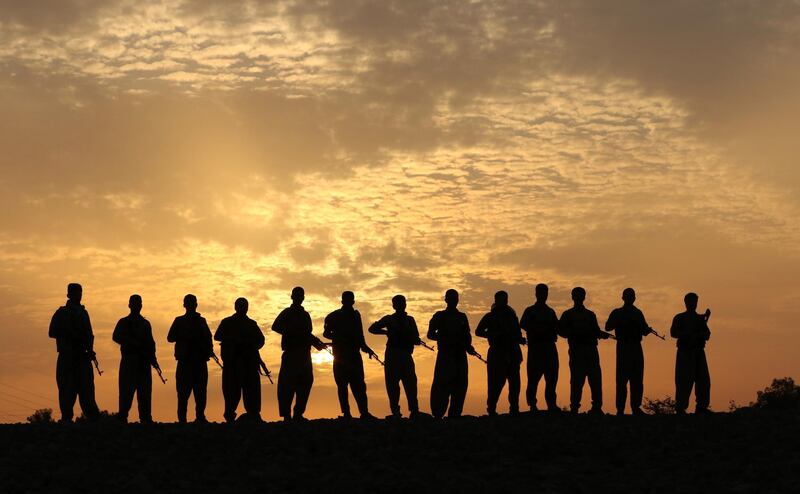A UK foreign office minister has claimed that international actors should “make something” of the fact there was a lack confrontation between Kurdish and Iraqi forces following the Kurdish independence referendum last year.
Alistair Burt also rebuked claims that the UK government had “inadvertently helped neutralise” the Iraqi Kurds as a bulwark against growing Iranian influence in the region.
The claims came in the form of written evidence provided to the committee by former British army officer Thomas Hardie-Forsyth in December. He said that intelligence documents, which have been “circulating in official departments since at least February 2016”, demonstrated Tehran’s “high-level aim to create through Iraq and Syria an unbroken land corridor to the Middle East North Africa region to further threaten Israel and the Lebanon”.
He added, that these had been achieved through the use of Iranian controlled elements of the Hashed Al Shaabi (Popular Mobilisation Units) during the federal government’s campaigns to recapture Mosul from Isil and Kirkuk frfom Kurdish Peshmerga forces in the past year.
Mr Hardie-Forsyth claimed that “the UK has been thoroughly blindsided by Iran, and have inadvertently helped neutralise one of our most effective allies in helping limit Iran’s increasing activities in the Mena region”.
An article published by The Guardian this week repeated the claims which were put to Mr Burt on Tuesday, at a foreign affairs select committee meeting on Kurdish aspirations and the interests of the UK at the House of Commons.
While Mr Burt said he would never comment on UK intelligence documents, he said he didn’t believe this was the case, describing the claim that Iran was attempting to construct a land bridge from Tehran to Lebanon as “open source stuff that we all know”.
Mr Burt also told the committee that he didn’t consider “the Iraqi-Kurds a neutered body”, and that he hoped various actors could “make something of the lack of confrontation after the referendum”, he added there was “a great deal of hope”.
He added that prior to the referendum there was a “risk of substantial clashes and resistance to Iraqi forces recovering disputed territories”, but these never materialised to as great an extent as feared because local people said “we don’t want this”.
Mr Burt also added that he didn’t believe it was for the UK to “mediate” in the ongoing disputes between the Kurdish and federal governments, despite pleas from some Kurdish groups and leaders for the UK involvement in solving current issues.
____________________________________
Also read: Kurdish football player shot at on German motorway
____________________________________
Michael Knights, a research fellow at the Washington Institute for Near East Policy, suggested the UK was somewhat bereft of alternative policy options when it came to the federal government’s recapturing of Kirkuk: “The UK still follows the US in Iraq, so the UK would only have had other options if it chose to go its own way”. He added “What matters is what the UK does next. If the UK wants to help the Kurds it should fly its defence minister directly into Erbil for talks, not allow Baghdad to prevent that access. And UK should use its heft as an IMF contributor to make the IMF insist in budget share for the Kurds before authorising the next IMF payment to Iraq.”
Iraq is set to receive around $800 million (Dh2.9 billion) from the IMF later this year.
When questioned on the topic of the Kurds in Syria, the UK position appeared far less robust as the minister repeatedly dodged questions regarding the links between the Kurdistan Workers' Party (PKK) – a designated terrorist organisation in Turkey, and the YPG in Syria, who form the bulk of the Syrian Democratic Forces (SDF) – the main UK ground ally in the fight against Isil, merely stating “we regard them as separate”.







